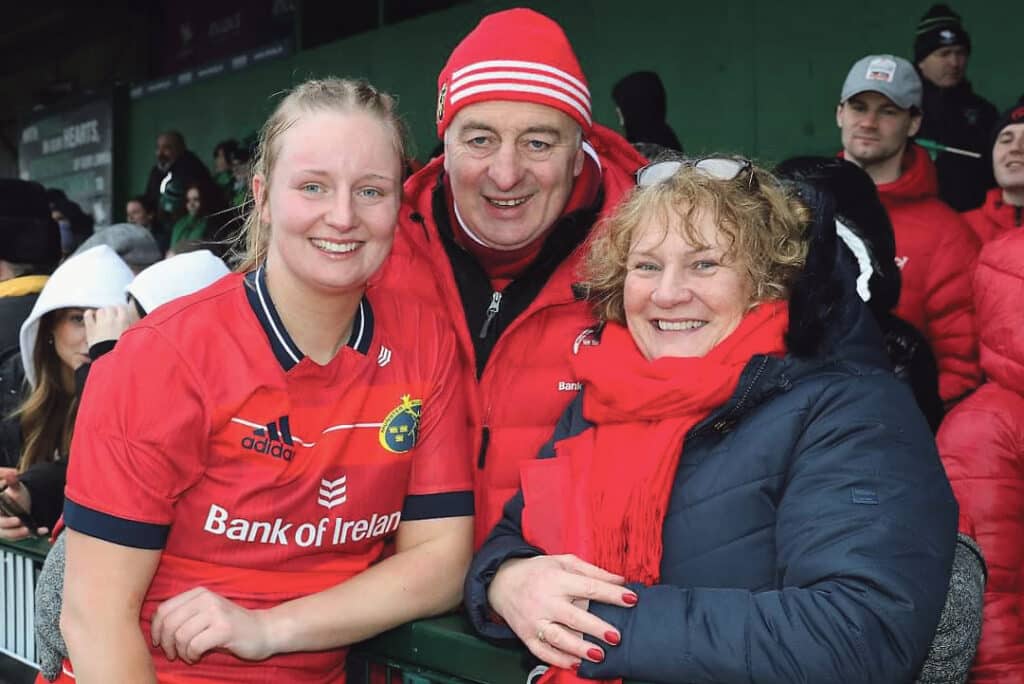‘In like a lion, out like a lamb’ – the proverb usually associated with March, has been reversed this year. The dry spell that dominated the second month of the year hung on for the early days of March before the wind and rain swirled back into our lives and those hazy February days became a distant memory.
We seem to be getting spells of three-to-six-week dry or wet weather in recent years. The upside is pasture growth has kicked on a little as temperatures have managed to stay above ten degrees for much of March.
Calving kicked off properly at the start of the month and before I knew it the two-thirds point was reached before hitting a bit of a mini-break. I think it’s the first year where the peak calving time became this condensed but, while there were a few busy days, things weren’t as hectic as they were other years.
Perhaps that’s down to having an eye on both the past and the future. I enjoy farming and have every intention of continuing to do so but I’m not as young as I used to be and won’t be getting younger. Combining what worked well before with making some labour-saving changes should help in that regard. A few changes of direction with an eye on the future and the bank balance have eased the workload and with the value of hindsight, I wish I had made some of those changes sooner.
Polled cattle
Topping the hindsight list is polled cattle. I now regret not making that choice much sooner. Disbudding suckler calves was easily my least favourite job. Even with them confined in the crush, it was physically demanding work that hopefully will no longer be required here.
With the exception of one calf who is from a hetrozygous polled bull but thankfully has no sign of buds yet, all the rest of the calves are from homozygous polled sires. It’s one job less to be done and other benefits include less strain on my back, no bad experience for calves and no cows getting over protective. The knock-on effect means an animal that’s a bit easier to deal with as they get older too.
Something to note when I’m doing a review of how things went is that I’ll need to scan earlier and get my cows into groups of when they’re due rather than messing around picking some out of different pens. Some of that is a result of trying to get a handle on how best to use the shed since the extension was put on a few years ago. It might make more sense to run the cows as a larger group with a straw lie-back and keep the weanlings on slats. With more calving in a shorter space of time it means more thought will have to be given to shed space.
As it stands the oldest third of calves are all out with since last week and are split into two groups. The calved heifers on their own and the cows as a separate group. There’s a far larger chance of a calf picking up scour if left indoors so they have been put into paddocks where they can find shelter from the wind and rain.
Milk Price, fertiliser and politics
Newswise, three big items stood out for me. Milk price fell another few cent and the base prices Irish dairy farmers were paid for February milk is anywhere from 10c/l to 12c/l back from December prices. I can’t ever recall so large a price fall in such a short period of time. While output prices have pulled back, the same can’t be said of inputs. March weather put a halt to a lot of fertiliser spreading but farmers are in a bit of a standoff as fertiliser prices remain high despite it being cheaper in Northern Ireland. This was highlighted when Wexford farmer and IFA grain committee vice-chairman, John Murphy imported a lorry load of CAN fertiliser at €560/ton (VAT exclusive) at the time prices for the same product in this jurisdiction ranged from €700 to €740/ton. I have a feeling that topic might run.
The other topic which could play out in the long run is the success of the Farmer–Citizen Movement (BoerBurgerBeweging, BBB) in the Dutch provincial elections. The party less than four years old took 20 per cent of the seats in the Dutch senate and with 15 of 75 seats it is now the largest party in the upper house of the Dutch parliament. Described as a populist right-of-centre party it was formed in 2019 to give a voice to the farmer protests against the governments plans for the sector. It gained one per cent of the national vote in the 2021 general election with leader Caroline van der Plas taking their solitary seat. Ms van der Plas was an agricultural journalist and adviser prior to her involvement in politics and was a member of the political party, the Christian Democratic Appeal (similar to FF or FG) before setting up the BBB. Interestingly, her mother Niamh Fitzpatrick, an Irishwoman, was previously a political representative for the CDA.
The BBB emerged from the imposition of environmental restrictions on farmers, the sense of voices not being heard in rural areas and a broader sense of conservative resistance to societal changes. Parallels could be drawn in an Irish context as many of the independent TDs could fall into some or all of those categories but some political commentators remain unsure if they could form a party under the same banner.



